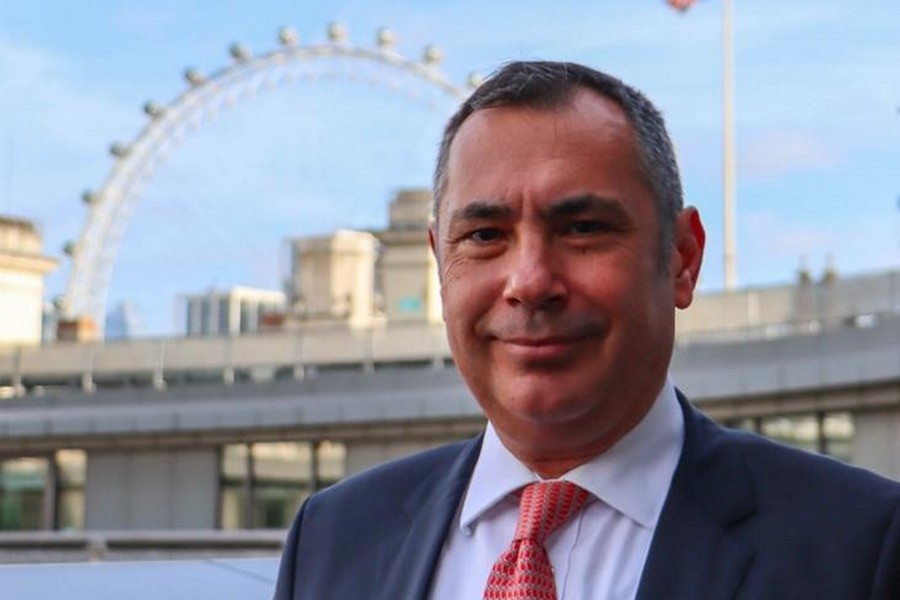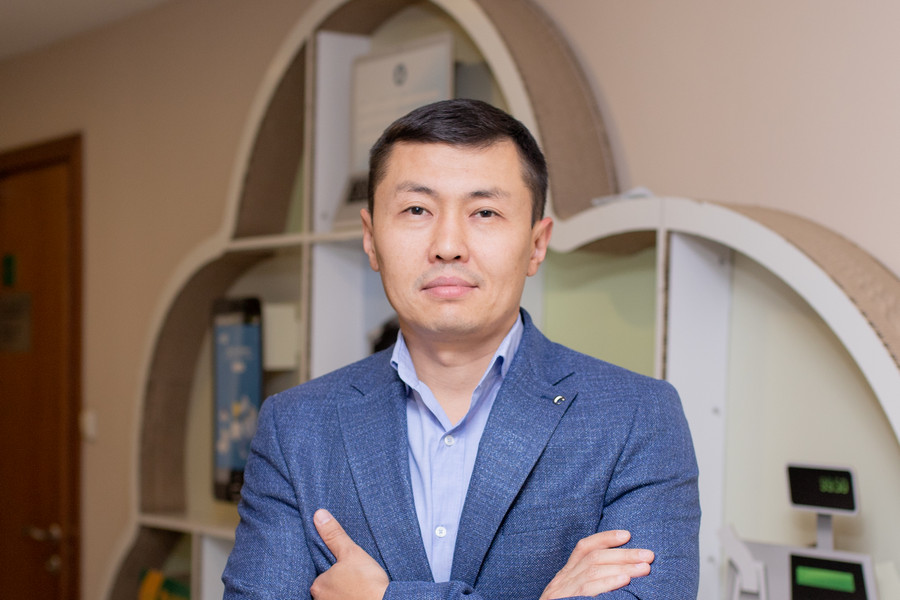ADB Country Director in Kazakhstan Nariman MANNAPBEKOV:
DESPITE THE CHALLENGES, THE PANDEMIC STIMULATED THE BANK'S ACTIVITIES

The COVID-19 pandemic has not become a barrier for the activities of the Asian Development Bank (ADB) in Kazakhstan. On the contrary, during this period the ADB has provided significant support to the country's economy and laid groundwork for new projects. ADB Country Director in Kazakhstan Nariman MANNAPBEKOV spoke to Interfax-Kazakhstan about financing last year, the bank’s ongoing projects and plans for 2021.
- Nariman Talatbekovich, tell us what 2020 was like for ADB in Kazakhstan. What projects were implemented, including as part of the bank’s support in response to the COVID-19 pandemic?
- Last year the focus of our activities shifted towards assisting the Kazakh government in mitigating the socio-economic impact of the pandemic. As you know, strict social lockdown measures significantly impacted the country’s economy. A drop in the price of oil and other commodities exacerbated the situation. There were fears that the pandemic would hit the economy harder than the 2008 and 2015 crises.
The government developed a comprehensive plan aimed at reducing the negative impact of the pandemic. It included measures to strengthen the healthcare system, enhance social protection, maintain employment, and expand support for businesses.
To finance all these activities, the government required additional funds from external sources and ADB was able to provide such support.
The ADB Board of Directors approved a $1 billion loan for Kazakhstan as part of the Bank’s special program promptly created last year to assist its developing member countries in financing their COVID-19 response measures. The loan is aimed at helping the government implement and finance comprehensive measures to fight the pandemic and minimize its negative impact on the country’s economy and people. The whole amount was transferred to the account of Kazakhstan’s Ministry of Finance. In parallel, this program was co-financed by the Asian Infrastructure Investment Bank.
In addition to the loan, we also provided several grants. A $3 million grant was allocated to procure essential medicine and medical equipment for the most vulnerable people. Another $1 million grant was provided for the procurement of personal protective equipment to help protect frontline healthcare workers. We also joined forces with UNDP on a project to help improve the healthcare waste management system in the country.
ADB also contributed $1 million to the COVID-19 Solidarity Fund established jointly with other international organizations. This facility is aimed at reducing the pandemic’s negative impact on the labor market through training and re-training programs in emerging areas in the post-pandemic environment.
- What is the total amount of financial assistance provided by the bank to Kazakhstan in 2020?
- Aside from the immediate COVID-19 response, ADB has continued working on its regular projects. The Bank has provided grants of over $7 million to prepare feasibility studies of projects in different sectors and thematic areas such as green finance, climate change, urban infrastructure, transport, PPP development and so on, thus creating the basis for future operations.
It is important to note that two projects approved in 2019 became effective last year. The first one is a $90 million project implemented jointly with Otbasy Bank to promote gender equality in housing finance. This project is expected to help at least 3,000 women access affordable housing finance. The second one is the reconstruction of Aktobe-Kandyagash road.
Notably, for the first time in the region’s history, ADB issued gender bonds in Kazakhstan and raised 8.4 billion tenge to finance the women’s residential mortgage project.
In the transport sector, later this year we expect to complete the reconstruction of 300 km Aktobe-Makat road section.
Thus, currently five sovereign projects are being implemented in Kazakhstan: two as part of COVID-19 pandemic response, two transport projects, and a finance sector project totaling $1.6 billion.
We also continue to work on our private sector operations. There are four such projects in our current portfolio: one in agribusiness with Kazakhstan’s leading food and beverage producer, and three projects in the energy sector, two of which are aimed at developing renewable energy sources through the construction of solar power plants.
All these projects are based on the three key pillars of our country partnership strategy: sustainable development, inclusive growth, and economic diversification.
- In addition, ADB issued green bonds on the Kazakhstan Stock Exchange (KASE). Tell us more how much funding was raised. What was the raised funding used for? Does ADB plan further placements of such securities?
- Climate change finance is a core development area for ADB, with $42.5 billion of clean energy investments initiated to date. ADB issued over $8 billion of green bonds in 11 currencies. Almost 14 billion tenge ($32 million) was raised in the first green bonds auctioned on the Kazakhstan Stock Exchange. Proceeds of the bonds will finance ADB's climate change adaptation and mitigation projects in the country.
By issuing local currency green bonds, ADB supports the Sustainable Development Goals, mitigates currency risks for our borrowers, and contributes to the development of the Kazakhstan capital market.
This work is ongoing. In addition to gender bonds, in February ADB also placed bonds worth over 9 billion tenge on KASE for financing the Aktobe-Kandyagash road construction project.
- In December 2020, the 19th Ministerial Conference of the Central Asia Regional Economic Cooperation (CAREC) was held. What are its results, as well as future plans and priorities of the CAREC program?
- The team in our headquarters is working on and coordinates this program. Following the conference, a joint ministerial statement was published, where the ministers commended CAREC’s efforts to address the challenges posed by the pandemic and noted the potential of digitalization and private sector participation in promoting innovations in the post-pandemic environment.
CAREC ministers also unanimously endorsed two new long-term strategies: a tourism strategy to develop safe and sustainable tourism destinations and provide jobs in CAREC countries, and a gender strategy to improve women's access to economic opportunities and empower them in decision-making processes.
As for projects directly linked to Kazakhstan, intentions were voiced to continue working on the Almaty-Bishkek and Shymkent-Tashkent-Khujand economic corridors. In December, a very productive video conference took place between the governments of Kazakhstan and the Kyrgyz Republic on the Almaty-Bishkek corridor. On the second project, negotiations are scheduled for the first half of this year.
- Does the ongoing pandemic impose any restrictions on ADB's activities?
- Multilateral development banks, on the contrary, had to step up their work. In crisis situations we try to maximize our support, and amid the pandemic many Asian countries needed financial assistance.
The pandemic is affecting ADB's operations, not only in terms of the amount of support that we are providing, but also how we organize the work. We were able to adapt the format of our work, even though the specialists of our head office had to suspend their trips. Last year only 2-3 missions arrived in Kazakhstan, while on average 50-60 missions used to arrive annually. We successfully hold all project discussions and negotiations online.
- Tell us what projects will be implemented in Kazakhstan in 2021.
- Our three-year operational business plan approved last autumn envisages preparation and approval of four projects, including in public utilities, transport, and financial sectors. However, given certain constraints and status of their preparation, we do not want to get ahead of ourselves. Once they are approved, we will brief you in detail.
- Thank you for the interview!
March, 2021
© 2024 Interfax-Kazakhstan news agency
Copying and use of these materials without reference to the source is prohibited
Archive






